UPDATED: Oregon Gets an F from the Center for Public Integrity
Monday, November 09, 2015
GoLocalPDX News Team
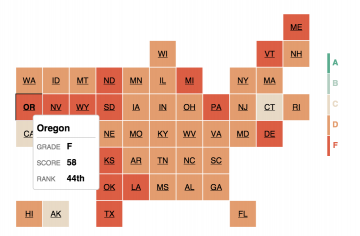 Oregon received failing marks for its integrity, based on the laws and systems they have in place to deter corruption, from the Center for Public Integrity in their 2015 State Integrity Investigation.
Oregon received failing marks for its integrity, based on the laws and systems they have in place to deter corruption, from the Center for Public Integrity in their 2015 State Integrity Investigation.
The study examined a state's integrity across 13 methods in order to determine a state’s ranking. Oregon finished with a grade of “F”, 44th out of the 50 states reviewed in the study.
Oregon received no grade higher than a “C+”, which it received for Internal Auditing, in any category. The state was scored at an “F” for Public Access to Information, Political Financing, Executive Accountability, Judicial Accountability, Procurement, Lobbying Disclosure, Ethics Enforcement Agencies and State Pension Fund Management.
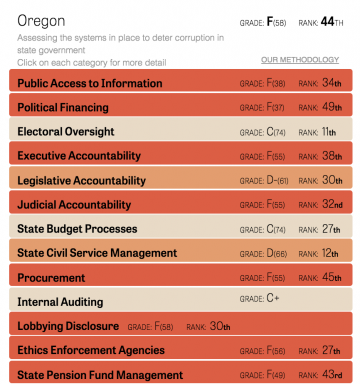 Oregon received a “D” in State Civil Service Management and a “D-“ in Legislative Accountability. It received a grade of “C” in Electoral Oversight and the State Budget Process.
Oregon received a “D” in State Civil Service Management and a “D-“ in Legislative Accountability. It received a grade of “C” in Electoral Oversight and the State Budget Process.
Part of the reason for Oregon’s substandard rating, according to the Center of Public Integrity, is the scandal and resignation of former Oregon Gov. John Kitzhaber.
“Kitzhaber’s resignation caused Oregon to receive an F in the category of executive accountability,” the study reads. “The debacle also ensnared the Oregon Government Ethics Commission, and highlighted why Oregon is one of the worst performing states with regard to access to information.”
The study also counted Oregon’s “relative lack of scandal” as a “function more of good manners rather than of law.” It also suggested that “lines are easily blurred in Oregon Government and ethical lapses and partisan abuses of power—while often not criminal—have been smoothed over by both political maneuvering and etiquette.”
Daniel Lewkow, political director for Common Cause Oregon, said in a statement that "this is not a problem that we cannot fix. This is a problem that we have chosen not to fix.”
“This is not the kind of Oregon Exceptionalism that we are proud of," Lewkow said. “Our state needs to work to get big money out of politics. The vast, vast majority of Oregonians want to address this now. Lawmakers need to listen to their voters, because there are some very direct and clear solutions that we can act on today.”
-
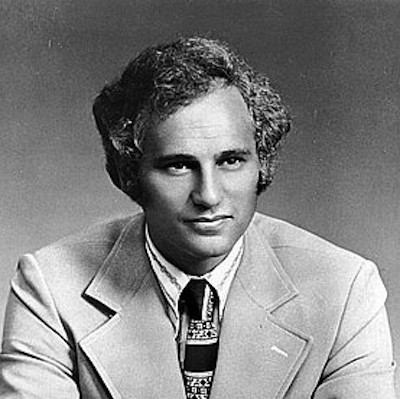
Neil Goldschmidt
2004
Former Oregon governor, Portland mayor and secretary of the U.S. Transportation Department admits that in the 1970s he had a sexual relationship with a 14-year-old girl. He said the “relationship” went on for 9 months. Goldschmidt was 35 and married at the time.
While Goldschmidt was not holding elective office at the time, he stepped down from his positions at the Oregon Board of Higher Education and Oregon Electric Utility Company. In 2000, he briefly reappeared on the public stage with a quixotic campaign to reconnect the North and South Park Blocks in downtown Portland. Goldschmidt retreated from public life. He was never charged with a crime.
Photo Credit: OrHi 102947 Courtesy Oregon Historical Society (image cropped)
-

Sam Adams
2005
Former city commissioner and then-mayor of Portland, Sam Adams admitted to having a sexual relationship with an 18-year-old male legislative intern after denying the charges and urging the boy to do the same. The two were together before Adams began campaigning for the office of mayor and before the young man was 18.
Adams eventually admitted to the relationship and agreed to cooperate with any investigation, but did not resign from office. The Department of Justice found no incriminating evidence in the investigation, so he was never charged. Adams chose not to run for re-election.
-
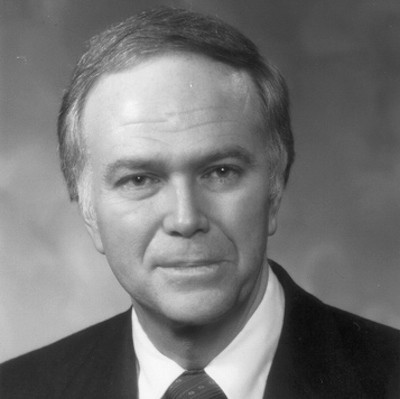
Bob Packwood
1992
US Republican Sen. Bob Packwood resigned from the Senate after 1995 when allegations of sexual harassment and abuse brought threats of expulsion. In a story in the Washington Post, 10 women claimed the senator had sexually abused and assaulted them.
Packwood’s diary, parts of which were turned over to the Senate Ethics Committee, allegedly documented his abusive behavior. It was later found out that he had removed some of the incriminating pages from the diary and allegedly made threats against other members of Congress. After resigning, Packwood spent time in an alcoholism clinic, blaming his actions on his drinking problem.
Photo Credit: [Public domain or Public domain], via Wikimedia Commons (image cropped)
-

Cover Oregon
2014
Oregon’s attempt to create a new health insurance marketplace was passed by the Oregon Legislative in 2011. Issues with a failing website that cost over $160 million of state funds caused the enrollment to switch to paper forms. Contractor Oracle sued Cover Oregon for breach of contract, claiming they were never paid for their software. A month later, Oregon sued Oracle Corporation for a breach of contract as well.
Carolyn Lawson, the former chief information officer for the Oregon Health Authority who received the brunt of the blame in the fiasco, sued Oregon for wrongful discharge and defamation. The lawsuits are still ongoing.
Photo Credit: iStock (image cropped)
-
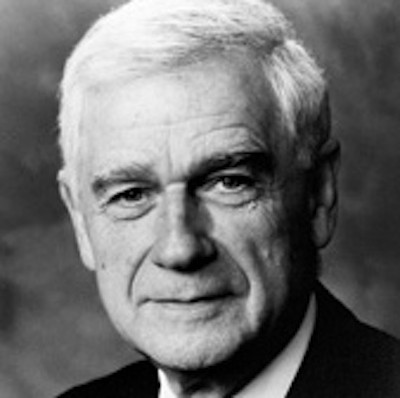
Mark Hatfield
1980's
As the Washington Post Reported in Mark Hatfield's Obit:
In the 1980s, his wife accepted $55,000 in payments for real estate work from a business tycoon with a multibillion-dollar contract before Congress. Mr. Hatfield apologized for the appearance of wrongdoing and gave the money to charity.
Several years later, in 1992, he was formally rebuked by the Senate ethics committee for not disclosing more than $42,000 in gifts from friends and lobbyists — the result of a “careless” clerical error, he said at the time.
Photo Credit: Ground at en.wikipedia [Public domain], from Wikimedia Commons
-
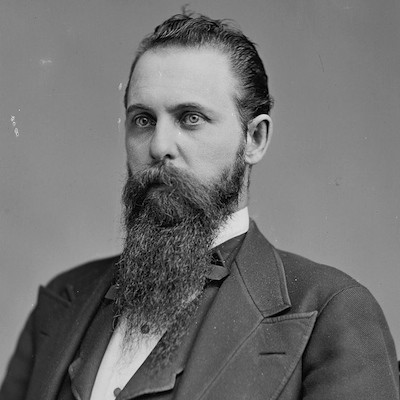
Oregon Land Fraud
1905-1907
In 1870, the Oregon and California Railroad was granted 3 million acres on which to build a rail line from Portland to California. The excess land was to be sold to settlers in small portions, yet the president of the railroad decided to sell the land to timber companies for a greater profit. He hired surveyor Stephen A. Douglas Puter to gather people from saloons to register for land that would be transferred to Puter and sold to the highest bidder for timber harvest.
With more than 1,000 initial indictments issued in the case, some U.S. senators and representatives were charged. Of the four major politicians brought to trial, only two—Rep. John Hicklin Hall and Sen. John H. Mitchell—were found guilty for failing to investigate the case. Hall was later pardoned by President William Howard Taft and Mitchell died from a tooth-extraction complication while waiting for his appeal.
By John_Hicklin_Hall.png: Republican Party [Public domain], via Wikimedia Commons (image cropped)
-
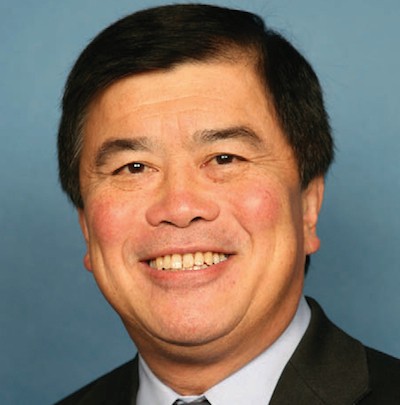
David Wu
2011
The Oregon Democrat congressman from Portland, was asked to resign after a young woman alleged Wu forced her into an unwanted sexual encounter. An 18-year-old girl told the Oregonian she had an “aggressive” sexual encounter with Wu. Wu admitted to the encounter, but claimed it was consensual. He fought resigning, but finally gave in.
It was not the first allegation of its kind against Wu. In 2004, a 1976 incident involving the alleged rape of his former girlfriend was looked into. Despite the attention, Wu won the election that year. Wu continues to live in the Washington, D.C. area.
Photo credit: Official portrait
-

Jeff Cogen
2013
While chairman of the Multnomah County Board of Commissioners, Jeff Cogen was investigated for using taxpayer money to pay for hotel rooms and trips for an extramarital affair with a county Health Department policy director. He was also accused of frequently smoking marijuana and using cocaine while in office.
Cogen refused to speak to state investigators and ignored calls to resign until a few months after the incident. No evidence was found to charge him with any crimes. This year he worked with a petitioning firm that gathered signatures for legalized marijuana.
Photo Credit: public domain
-

Jefferson Smith
2012
The Willamette Week reported that Portland mayoral candidate Smith was cited for a 1993 for a misdemeanor assault on a women. The alleged assault took place when Smith was enrolled at the University of Oregon. Witnesses said that the victim woke up with Smith on top of her, and started hitting him. Smith claimed that "it was the worst night of his life" and that he tried to take responsibility for it immediately.
Smith said he agreed to 20 hours of community service, apologized to the woman, and paid her medical bills. He said the charge was dropped in exchange.
Photo credit: public domain
-

Multnomah Bridge Scandal
1924
In 1924 three county commissioners were recalled for "graft, bribery, and malfeasance" after awarding a construction contract for the repair of the Burnside Bridge and the construction of the Sellwood and Ross Island bridges. They voted to select a bid offered as a joint effort by three local construction firms, who would each build a new bridge. It was $500,000 more than the only other bid that was entered in a rushed, 24-hour window.
The public started a recall petition for the commissioners and the Oregon State Attorney started an investigation, charging the commissioners with soliciting, accepting bribes, and malfeasance for not picking the lowest bid. Although no charges stuck, the commissioners were kicked out of office by a large majority of voters.
By Steve Morgan (Own work), via cc (image cropped)
-
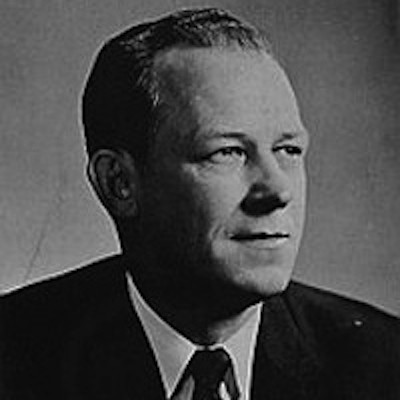
Terry Schrunk (Bonus)
1957
Schrunk was the mayor of Portland for 16 years, 1957-1973. His first year as mayor, allegations of bribery and perjury charges landed him before a special Senate committe.
Schrunk was accused of raiding the rowdy 8212 club with fellow deputies in 1955 when he was a Multnomah County Sheriff, and accepting a $500 bribe from the manager to leave and look the other way.
Schrunk denied having taken any bribe, but did admit that his deputies had raided the 8212 Club, seen illegal activity, and left without further action. Schrunk was tried on bribery and perjury charges and found not guilty.
Photo Credit: Oreg. Hist. Soc. Research Lib., bb005787 (image cropped)
 Oregon received failing marks for its integrity, based on the laws and systems they have in place to deter corruption, from the Center for Public Integrity in their 2015 State Integrity Investigation.
Oregon received failing marks for its integrity, based on the laws and systems they have in place to deter corruption, from the Center for Public Integrity in their 2015 State Integrity Investigation. Oregon received a “D” in State Civil Service Management and a “D-“ in Legislative Accountability. It received a grade of “C” in Electoral Oversight and the State Budget Process.
Oregon received a “D” in State Civil Service Management and a “D-“ in Legislative Accountability. It received a grade of “C” in Electoral Oversight and the State Budget Process.











